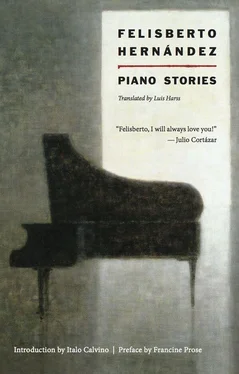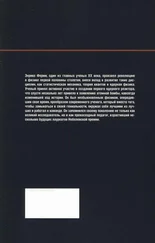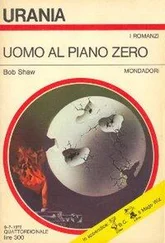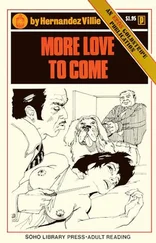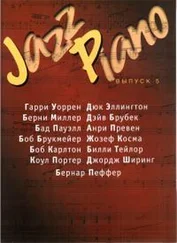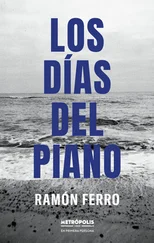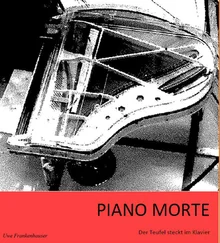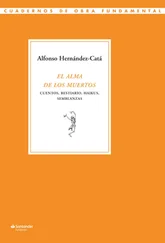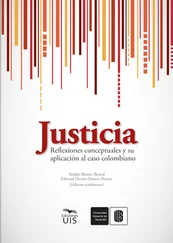Felisberto Hernandez - Piano Stories
Здесь есть возможность читать онлайн «Felisberto Hernandez - Piano Stories» весь текст электронной книги совершенно бесплатно (целиком полную версию без сокращений). В некоторых случаях можно слушать аудио, скачать через торрент в формате fb2 и присутствует краткое содержание. Год выпуска: 2014, Издательство: New Directions, Жанр: Современная проза, на английском языке. Описание произведения, (предисловие) а так же отзывы посетителей доступны на портале библиотеки ЛибКат.
- Название:Piano Stories
- Автор:
- Издательство:New Directions
- Жанр:
- Год:2014
- ISBN:нет данных
- Рейтинг книги:4 / 5. Голосов: 1
-
Избранное:Добавить в избранное
- Отзывы:
-
Ваша оценка:
- 80
- 1
- 2
- 3
- 4
- 5
Piano Stories: краткое содержание, описание и аннотация
Предлагаем к чтению аннотацию, описание, краткое содержание или предисловие (зависит от того, что написал сам автор книги «Piano Stories»). Если вы не нашли необходимую информацию о книге — напишите в комментариях, мы постараемся отыскать её.
Piano Stories
Piano Stories — читать онлайн бесплатно полную книгу (весь текст) целиком
Ниже представлен текст книги, разбитый по страницам. Система сохранения места последней прочитанной страницы, позволяет с удобством читать онлайн бесплатно книгу «Piano Stories», без необходимости каждый раз заново искать на чём Вы остановились. Поставьте закладку, и сможете в любой момент перейти на страницу, на которой закончили чтение.
Интервал:
Закладка:
When I inadvertently caught the husband’s eye and quickly looked down, I felt frustrated and upset. And since this happened a number of times, the memory of the anguish and humiliation lingered on my eyelids, so that the moment I met his eyes I knew what to expect. Sometimes I held his look just long enough to figure out some way to remove mine without feeling humiliated: I tried slipping it out sideways, suddenly focusing on the frame, as if interested in its shape. But shifting my eyes, with my attention still on him, made his overbearing presence even more humiliating; I also felt I was cheating. Yet I did once manage to forget his look or my humiliation a little. I had quickly withdrawn my eyes from his and fixed them on his mustache. The thick black tuft over his lip narrowed in either direction into pointed whiskers that stretched for some considerable distance. I thought of my grandmother’s round, pudgy fingers — once she had pricked a finger and the blood had squirted to the ceiling — and imagined the whiskers had been twisted by her. (She would spend ages twisting a black thread with perspiring fingers to pass it through a needle. Because of her poor eyesight she held the thread and needle too far away, cocking her head to see better, so the job never got done.) It seemed the man in the picture must have spent just as long twisting his mustache. And while he twisted and stared, who knew what was on his mind.
Although the secrets of grownups could be glimpsed in their actions and conversations, I had my favorite way of uncovering them — when the people were absent and I could find their traces in something they had left behind. It might be a forgotten object or simply one left temporarily in place — or, better yet, hurriedly, out of place — while they were gone. Whatever it was, it had to have been in use for some time before I noticed it. It might have entered a person’s life by chance or secret choice or for whatever other unknown reason: what mattered was that it had started to fulfill some purpose or to mean something to the person who used it, so that the moment it was left unattended I could begin to trace that person’s secrets in it.
In Celina’s parlor there were many things that made me want to look for secrets. Just being in an unfamiliar place was one of them. Knowing, besides, that everything there belonged to Celina and that she was so stern and likely to keep such a tight hold on her secrets quickened the strange desire I felt to break into those secrets.
At first I had glanced at things casually. Then I had wondered about the secrets they had in themselves. And suddenly it had occurred to me that they — or other things that I wasn’t seeing at that moment — might be intermediaries in the world of grownups and have hidden meanings or be involved in mysterious actions. Then it seemed to me that I had caught one making a secret sign at another and a third pretending not to notice when the second returned the sign to the first and so on, making fun of me, until they wore me down playing their game back and forth, always leaving me out. It must have been at one of those moments that my attention was caught, without my quite realizing it, by the suggestive curves and undulations of women and I must have felt carried along in the ripples, only to be snatched back by the watchful eyes of the husband in the picture. But by the time I had intercepted several calls from the various characters in different parts of the room playing their game at my expense, I realized that at first I had been drawn toward a secret that interested me more and then my attention had been interrupted and sidetracked by a lesser secret, and that I had probably been more on track when I was raising the skirts of the chairs.
Once when my hands were reaching out for the skirt of a chair they were stopped short by the loud noise of the hallway door as Celina hurried in from the street. I barely had time to pull the hands back when she came up in her usual way and kissed me. (The habit was ruthlessly suppressed as we parted one afternoon and she told my mother something in the order of, “This young gentlemen is growing up and from now on we’ll have to shake hands.”) She was in black, her tall, slim figure bound tight in her heavy wool dress, as if she had run her hands many times down the curves formed by the corset to smooth out every wrinkle and then up to choke her neck in the high collar that reached to her ears. Topping it all was her very white face with very black eyes, a very white forehead and very black hair done up in a bun like that of a queen I had seen on some coins: it reminded me of a burned pudding.
I was just beginning to digest the surprise of Celina’s noisy entrance and her kiss when she reappeared in the room. But now, over the stern black dress, she wore white: a starched smock of lightweight material that had short flared sleeves with ruffles. From each ruffle emerged an arm still bound — down to the wrist — in the long black sleeve of the street dress. That was in winter: in summer the arm emerging from the ruffle was completely naked. Something about the bare arm in its starched ruffle reminded me of the artificial flowers made by a lady who lived just around the corner from my house. (Once my mother had stopped to chat with this lady. She was enormously fat and cheerful; seen from the sidewalk when she stood on her doorstep, she seemed immense. My mother told her she was taking me to my piano lesson, and for some reason the lady got worked up and said: “I also used to study the piano. I studied and studied and nothing happened, I never had anything to show for it. But since I’ve been making my wax fruit and flowers. . At least I can see them, touch them. . and that’s something, anyway.” The fruit in question was big yellow bananas and big red apples. She was a coalman’s daughter: very white, blonde, with naturally ruddy cheeks, and the wax fruit could have been her children.)
One winter day my grandmother had taken me to my lesson. Seeing my ten-year-old child’s hands turn blue from the cold on the white and black keys, she was moved to warm them in hers. (On lesson days she scented her hands with a mixture of cologne and plain water: a milky blend that looked like orgeat. She used the same stuff as a mouthwash to rinse out the smell of the cigars my father brought her in packages of twenty-five and over which she went into such a rage when he couldn’t find her exact brand, size and flavor.)
Since it was winter, night came early. But the windows had not seen it come in: they had gone on absently gazing at the clear sky until the last bit of light faded. The night floated up around our legs from under the furniture, where the black souls of the chairs grew and spread. Soon the white slip covers were quietly suspended in the air, like small harmless ghosts. Suddenly Celina would rise, light a small lamp on a coil and attach it to the candleholder on the piano. When my grandmother and I lit up in the light it was like being in a blaze of bright hay. Then Celina would put the shade on the lamp and her heavily powdered face was no longer so ghostly white. Her eyes also seemed less raw, her hair less starkly black.
When Celina was seated next to me I never dared to look at her: I sat stiff-backed as if I were in a cart, braking a horse. (If it was a slow horse it would be lashed on, if a spirited horse it might bolt and be punished even more severely.) Only when Celina spoke to my grandmother, leaning her forearm on one of the boards of the piano, did I sneak a look at her hand. At the same time my eyes took in the long black sleeve running down to her wrist.
The three of us had bent forward toward the light and sound (or, rather, to wait for the sound, because my notes came spaced painfully far apart and we kept listening for more but were almost never rewarded for our effort, our three heads slowly working together, as in a dream, eyes glued to my poor fingers). My grandmother had remained in part darkness because she hadn’t drawn her armchair up close enough and she seemed to hang in midair. She was so fat that her bulk — stuffed into an unchanging gray housecoat with a little black velvet collar — blotted out the chair, leaving only a bit of backrest clear on either side of her head. The half shadow she was in disguised her wrinkles. The ones on her cheeks were round and spread out, like ripples on a pond when a stone has dropped in, the ones on her forehead straight and piled up on each other, like still water ruffled by a soft wind. Her full, kindly face seemed to portray the word “grandmother”: she made me feel how round that word was. (Whenever a friend’s grandmother had a thin face, I thought the word “grandmother” didn’t fit her and she would probably not be as kindhearted as mine.)
Читать дальшеИнтервал:
Закладка:
Похожие книги на «Piano Stories»
Представляем Вашему вниманию похожие книги на «Piano Stories» списком для выбора. Мы отобрали схожую по названию и смыслу литературу в надежде предоставить читателям больше вариантов отыскать новые, интересные, ещё непрочитанные произведения.
Обсуждение, отзывы о книге «Piano Stories» и просто собственные мнения читателей. Оставьте ваши комментарии, напишите, что Вы думаете о произведении, его смысле или главных героях. Укажите что конкретно понравилось, а что нет, и почему Вы так считаете.
